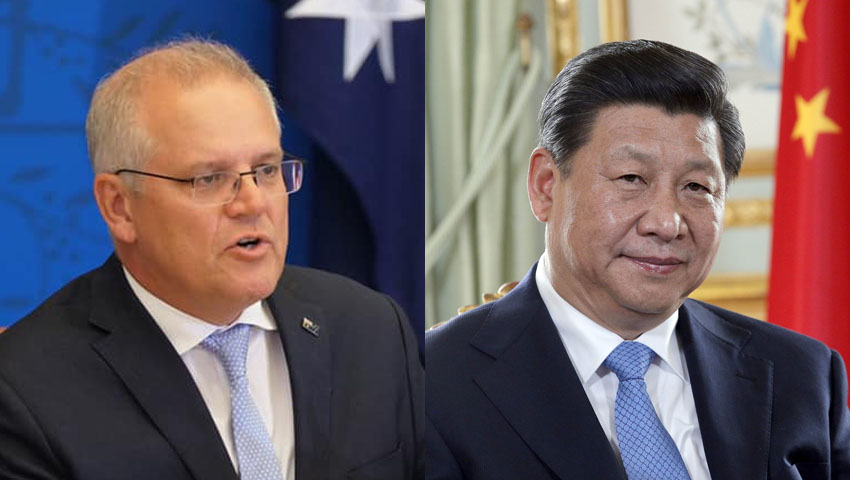China’s “Health Silk Road” has provided vaccine support to more than 80 countries, some as gifts and others with debt bills attached to them. Has Australia been able to compete with China supporting our regional neighbours with vaccines?
To continue reading the rest of this article, please log in.
Create free account to get unlimited news articles and more!
According to a report by Purvaja Modak from the Future Directions research institute, China has pledged vaccine support to more than 80 nations with some bundled up as gifts, and others with long-term debt bills attached. In Modak’s view, by stepping up and supporting the developing world, China has successfully reframed the recent pandemic from being a Chinese created virus to a “provider of solutions”.
This should alarm western analysts, with the “Health Silk Road” having global reach with recipients – and potentially new found allies – on every continent.
“It has supplied its vaccines to five countries in India’s neighbourhood, to 27 African countries, 12 countries in western and central Asia, 12 more in south-east Asia and the Pacific, 15 countries in Latin America and signed agreements to supply its vaccines to over 20 more countries,” Modak wrote.
These aren’t just targets, China is really meeting its end of the bargain.
“On 2 June 2021, China’s Ministry of Foreign Affairs stated that China had provided ‘more than 350 million doses’ of vaccines to the international community by that date,” Modak continued.
Not only has this vaccine diplomacy created economic benefits for China by stimulating its pharmaceutical industry and creating long-term debt burdens for developing countries, but it also generated more good will for those countries currently partaking in China’s belt-and-road initiative and has also generated dialogue with nations with whom dialogue previously didn’t exist.
Rightfully so, this has triggered alarm in the West.
“US President Joe Biden recently announced that the US will share 80 million doses of its vaccines with the world. The US and the other countries of the Quadrilateral Dialogue – Australia, India and Japan – agreed in March 2021 to provide 100 million doses of the vaccine developed by Johnson & Johnson to Asian countries by the end of 2022 to counter China’s influence in the Indo-Pacific region,” Modak wrote.
To Australia’s credit, however, the country has refused to cede ground in the vaccine diplomacy wars, having pledged 15 million vaccines to the region by mid-2022.
According to Andrew Tillett and Michael Smith in the AFR earlier this month, 320,000 doses of the vaccine have been sent to Fiji, 135,000 doses sent to Timor-Leste, 28,470 doses sent to Papua New Guinea, 13,000 doses sent to the Solomon Island and 7,000 doses sent to Tuvalu. Australia has not shied away from the challenge, much to the ire of the Chinese government.
In response to Australia’s vaccine activity, the Chinese newspaper The Global Times accused Australia of sending agents to undermine China’s vaccine rollout in the region.
“By planting Australian consultants in Papua New Guinea to manipulate local epidemic prevention policies targeting China, obstructing the authorising of Chinese vaccines' emergency use, threatening senior officials from welcoming Chinese vaccines, Australia has been found sabotaging and disturbing Pacific island nations' cooperation with China on vaccines and anti-virus measures, with experts criticising Australia's actions as hurting people's interest in the Pacific island countries out of a pure Cold War mentality,” The Global Times wrote.
Speaking to the ABC, Minister for International Development and the Pacific Zed Seselja denied China’s accusations.
“When it comes to the rollout, what we’re focused on is just making sure that we are providing as much assistance as we possibly can. If other countries want to provide assistance, that’s wonderful,” Minister Seselja argued.
Despite stepping up to the mark and providing vaccines and aid to our regional neighbours, Australia’s reputation in the Indo-Pacific lags.
Hillary Mansour in ASPI’s The Strategist earlier this year illustrated that Australia’s perception among Indonesians – Australia’s largest neighbour – is simply quite poor.
“Disconcertingly, Australia’s aid contribution doesn’t seem to have registered with Indonesians. When asked which nation provided the most help during the pandemic, the Indonesian respondents selected the US (7 per cent), Japan (9.3 per cent), the EU (20.2 per cent) and China (45 per cent). Australia ranked with the Republic of Korea at 6.2 per cent. These selections do not correlate with actual aid contributions. Australia’s $1.5 billion loan and millions of dollars’ worth of donations to Indonesia dwarf the US$12 million provided by the United States, South Korea’s US$5 million and the EU’s Team Europe collective €200 million in grants and loans,” Mansour notes.
While Australia has risen to the challenge to win the regional vaccine race, Australia needs to rid itself of charitable humility. Australia needs to shine a spotlight on the good work that it does in the region to build long lasting and enduring good will.
Get involved with the discussion and let us know your thoughts on Australia’s future role and position in the Indo-Pacific region and what you would like to see from Australia's political leaders in terms of partisan and bipartisan agenda setting in the comments section below, or get in touch with

 Login
Login







